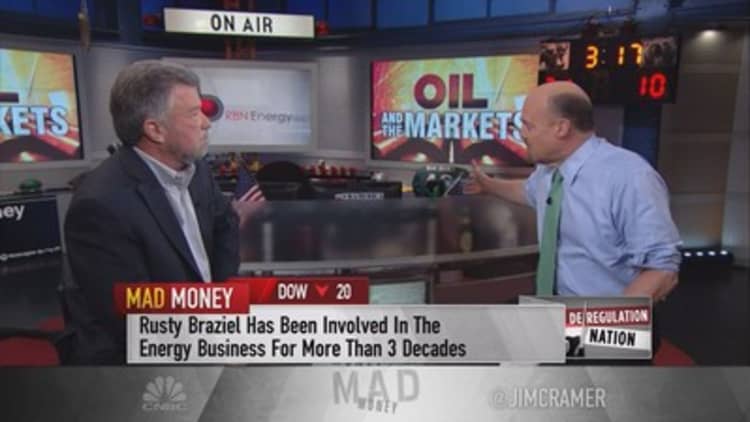
U.S. crude on Tuesday closed at its lowest since November as the market discounted the latest talk by OPEC that it would extend output cuts beyond June.
That decline also came ahead of the release of weekly U.S. crude inventory data later Tuesday and on Wednesday that is expected to show a crude stock build of 2.6 million barrels, according to a Reuters poll.
U.S. West Texas Intermediate (WTI) crude closed Tuesday's session down 88 cents, or 1.8 percent, at $47.34, its lowest settle since Nov. 29. The contract earlier rose to $49.48.
Brent crude, the international benchmark for oil, was down 60 cents, or 1.2 percent, at $51.02 per barrel by 2:36 p.m. ET (1836 GMT), off a session high of $52.22.
Sources within the Organization of the Petroleum Exporting Countries have indicated that its members increasingly favor extended production cuts but want the backing of non-OPEC oil producers, such as Russia, which have yet to deliver fully on existing reductions.

"OPEC is sticking with a plan that has not worked," said Phil Davis, managing partner at PSW Investments in Woodland Park, New Jersey, noting they are not offering more cuts and no new countries are joining in the cuts.
The group and some non-OPEC producers agreed to curb production from Jan. 1 by 1.8 million barrels per day (bpd) for six months to drain crude from record stockpiles. But inventories remain stubbornly large.
"We think it is very unlikely that Russia will actively take part in any extension of the production cuts that goes beyond paying lip service to the agreement," Commerzbank said in a note, adding that it would be premature for investors to "pin their hopes" on an extension.
Commerzbank said that OPEC cuts would need to last into the fourth quarter to achieve the group's goal of reducing record oil stockpiles in industrialized nations to their five-year average.
Investors were awaiting U.S. inventories data expected to reveal rising stocks after a surprise drop in the week to March 10, with data from the American Petroleum Institute (API) at 4:30 p.m. EDT on Tuesday and the U.S. Energy Information Administration (EIA) at 10:30 a.m. EDT on Wednesday.

The WTI delivery hub in Cushing, Oklahoma, could be a particular focus in Tuesday's API data.
Stocks at Cushing rose in the week to March 10, helping to widen the premium for Brent over WTI. That gap now stands at around $2.82 for May delivery, its highest since the end of January.
"Another increase would be generally bearish for WTI-related spreads," said Tamas Varga, analyst at London broker PVM Oil Associates.
If supply restraints stay in place, analysts said solid global demand could gradually help rebalance the market, even with expanding U.S. production of shale oil.
"The combination of robust demand and weaker global supply leading to rebalanced markets will not be derailed by U.S. shale oil," said Jeremy Baker, senior commodity strategist at Vontobel Asset Management.
— CNBC's Tom DiChristopher contributed to this report.

